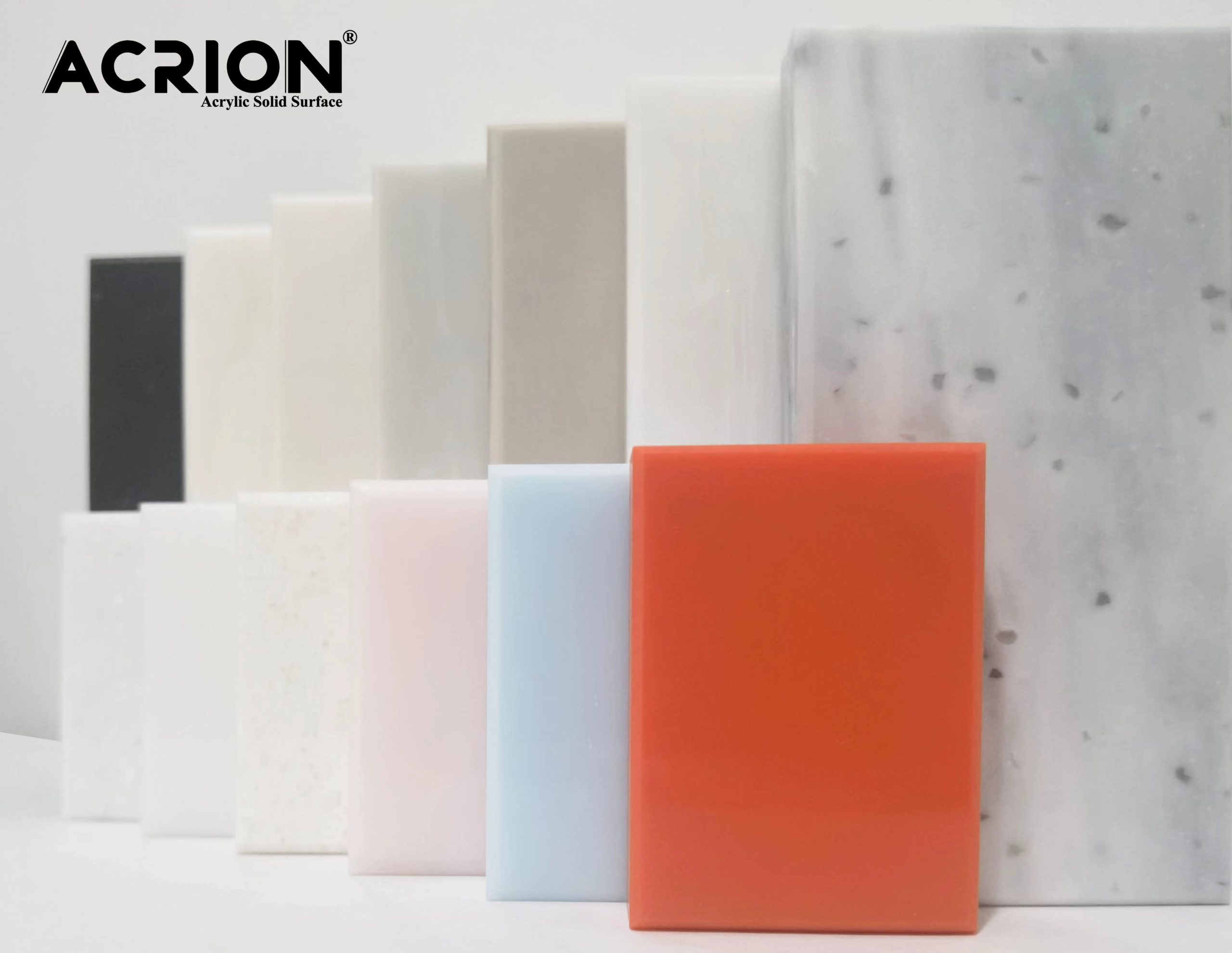Precision Techniques for Corian Countertop Edge Finishing
Thermal Forming for Seamless Transitions
The corner radius plays a critical role in both aesthetics and durability. For rounded edges, thermal forming allows achieving smooth curves without visible seams. The process involves heating the Corian to 160°C, then shaping it over custom-made molds with radii ranging from 3mm to 25mm. A 6mm radius is particularly popular for kitchen countertops as it balances ergonomic comfort with structural integrity. When forming internal corners, maintaining a minimum 5mm fillet radius prevents stress concentration that could lead to cracking under impact.
In applications requiring tighter bends, such as backsplash transitions, a two-step heating approach proves effective. First, the material is pre-heated to 120°C for 15 minutes, then gradually increased to 160°C for final shaping. This gradual temperature increase minimizes surface deformation while ensuring consistent curvature. A case study demonstrated this method’s success in creating a 180-degree wraparound edge for a reception desk, maintaining uniform 12mm thickness throughout the bend.
Mechanical Reinforcement for High-Stress Areas
Edges exposed to frequent impact, such as those near sinks or cooking zones, require additional reinforcement. One effective technique involves embedding aluminum or fiberglass rods during the manufacturing process. These rods, typically 6mm in diameter, are positioned 10mm below the surface along the entire edge length. In stress tests, this reinforcement increased impact resistance by 40% compared to unreinforced edges, preventing chipping from dropped utensils or heavy cookware.
For undermount sink installations, the edge transition demands dual protection. First, a 15mm wide support ledge is thermoformed into the Corian during production. Second, the sink flange receives a continuous bead of structural adhesive with a 24-hour cure time. This combination prevents flexing that could cause adhesive failure over time. In a laboratory simulation of 5,000 sink-opening cycles, the reinforced edge maintained its seal integrity without visible deformation.
Advanced Polishing Methods for Optical Clarity
Achieving a glass-like finish on Corian edges requires multi-stage polishing with progressively finer abrasives. The process begins with 120-grit diamond pads to shape the edge, followed by 220-grit pads to remove scratches. The final stages use 400-grit and then 600-grit pads to create a mirror finish. Between each stage, the surface must be thoroughly cleaned to prevent cross-contamination of abrasive particles.
For edges meeting tile or stone backsplashes, a micro-bevel of 0.5mm at 45 degrees creates a subtle shadow line that enhances visual depth. This bevel is polished using a felt pad moistened with ceramic oxide compound, applied in circular motions at 1,500 RPM. The result is a transition that appears continuous from all viewing angles, eliminating the “stepped” appearance common in amateur installations.
Specialized Techniques for Complex Geometries
When Corian meets other materials at varying heights, such as in kitchen islands with tiered surfaces, a stepped transition profile ensures clean lines. This involves creating a 12mm high by 6mm deep step in the Corian, into which the adjacent material’s edge tuck fits precisely. The joint is then filled with epoxy grout matched to both materials’ colors, creating a cohesive appearance. In a high-end restaurant installation, this method successfully integrated Corian with marble and stainless steel elements.
For outdoor applications where UV exposure is a concern, edge finishing must incorporate protective measures. After initial polishing, the edge receives two coats of UV-stable acrylic sealer applied with a microfiber cloth. Each coat dries for 30 minutes before light buffing with a lambswool pad. This treatment reduces color fading by 75% compared to unsealed edges in accelerated aging tests simulating five years of outdoor exposure.
